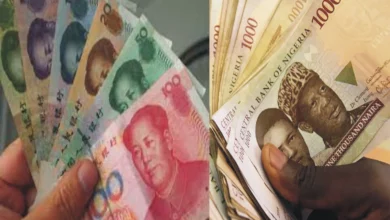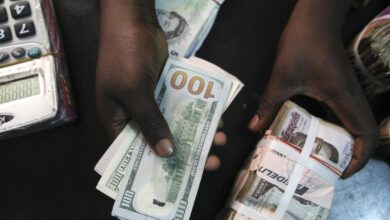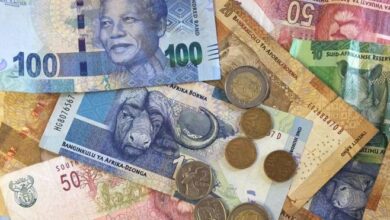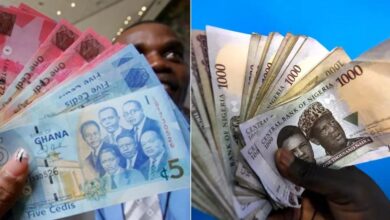West African CFA Franc (XOF) to Naira Official and Black Market Exchange Rate Today
The CFA franc was introduced to these countries in 1945 and has since been pegged to the euro.
The CFA franc is a convertible currency, which means that it can be exchanged for other currencies. The exchange rate between the CFA franc and the Nigerian naira is determined by the black market.
The black market is the unofficial market where currencies are bought and sold at rates that differ from the official exchange rate.
The West African CFA franc Currency
The West African CFA franc is the currency used in eight West African countries. These countries are Benin, Burkina Faso, Guinea-Bissau, Ivory Coast, Mali, Niger, Senegal, and Togo. The currency is issued by the Central Bank of West African States (BCEAO).
The West African CFA franc was introduced in 1945, replacing the French West African franc. The currency was pegged to the French franc until 1962, when it was devalued and pegged to the newly created CFA franc.
In 1948, the peg to the French franc was changed from 1:1 to 1:2. In 1994, the CFA franc was devalued again and pegged to the French franc at a rate of 1 CFA franc = 0.55 French francs.
5 Facts About The West African CFA franc Currency
The West African CFA franc is the currency of eight independent states in West Africa: Benin, Burkina Faso, Guinea-Bissau, Ivory Coast, Mali, Niger, Senegal and Togo. The currency is issued by the Central Bank of West African States (BCEAO), and its name derives from the French name of the West African Monetary Union, Union économique et monétaire ouest-africaine.
Here are 5 facts about the West African CFA franc:
- The CFA franc was introduced in 1945.
- The CFA franc was originally pegged to the French franc.
- The CFA franc was revalued in 1994.
- The CFA franc is used in eight West African countries.
- The currency is issued by the Central Bank of West African States (BCEAO).
The Nigerian Naira Currency
The Nigerian Naira is the official currency of Nigeria. The Naira was introduced in 1973, replacing the Pound Sterling. The Naira is issued by the Central Bank of Nigeria. The name “Naira” is derived from the Yoruba language, and means “cowrie shell”, which was once used as currency in West Africa.
West African CFA franc to Naira Black Market Exchange Rate Today
CEFA to Naira Black Market Rate
Buying @1 CFA = 0.62 Naira
Selling @1 CEA = 0.64 Naira
Naira to CEFA Black Market Rate
Buying @1 Naira = 1.4013 CFA
Selling @ 1 NGN = 1. 61 CFA
CEFA to Naira Official CBN Rate
Buying @1 CFA ₦ 0.72 Naira
Selling @ 1 CFA- ₦ 0.81 Naira
Naira to CEFA Official CBN Rate
Buying @1 Naira – 1.61 CFA
Selling @ 1 Naira = 1.56 CFA
Factors affecting the exchange rate of the West African CFA franc to Naira
First, the political and economic climate between West African nations and Nigeria plays a huge part. As both regions share a border, Nigeria is able to significantly impact the economies of these countries, as well as their currency values.
Second, the value of the West African CFA franc is largely determined by the amount of foreign investment in West African countries. When foreign investors have more confidence in a country’s economy, they are more likely to purchase its currency, thereby driving up its value.
Conversely, when foreign investors have less confidence, they may pull their investments out of the country, leading to a devaluation of its currency.
Third, global economic trends can also affect the exchange rate of the West African CFA franc to Naira. When global markets are doing well, it may boost the demand for Nigerian Naira, driving up its exchange rate against other currencies.
On the other hand, when global markets are struggling, this could lead to a drop in the demand for Naira, leading to a weaker exchange rate with the West African CFA franc.
Finally, the supply and demand of the West African CFA franc can also play an important role in determining its exchange rate with the Naira.
When there is high demand for the West African CFA franc, it will usually appreciate in value, while if there is low demand, it will usually depreciate.
Countries That Use West African CFA franc
The West African CFA franc is the currency used in eight West African countries. These countries are:
- Benin,
- Burkina Faso,
- Guinea-Bissau,
- Ivory Coast,
- Mali,
- Niger,
- Senegal
How to get the best West African CFA franc to Naira exchange rate
The black market exchange rate is constantly fluctuating, so it is important to stay informed in order to get the best deal.
This rate is determined by a variety of factors, such as the demand for a currency, the overall economic situation, and political events. It is important to keep an eye on these factors in order to get the best rate.
It is also important to compare exchange rates between different services and banks before making a decision. Don’t just settle for the first rate that you find – check around to get the best deal.
You should also consider any fees that may be associated with a particular service. Some services charge hidden fees, so be sure to ask about these before you decide.
Finally, make sure you understand the terms and conditions of any exchanger you choose
West African CFA franc to Naira Black Market Exchange Rate FAQS
How much is one CFA to a naira?
Currently, one CFA is ₦ 0.81 Naira
How much is 1000cf to naira?
1000 CFA is 810 naira
Is CFA more valuable than naira?
The West African CFA franc (XOF) and Nigerian Naira (NGN) are two of the most widely used currencies in West Africa.
Both currencies have been used for decades in the region, and as such, many people are interested in the exchange rate between them.
The naira has more value than the CFA and as such, is more valuable.
Conclusion
The West African CFA franc to Naira black market exchange rate is determined by many factors. The most important of these is the political stability of Nigeria and the rest of the West African region.
Other important factors include the inflation rates in both Nigeria and the West African region, as well as the interest rates offered on CFA franc-denominated deposits in Nigerian banks.



